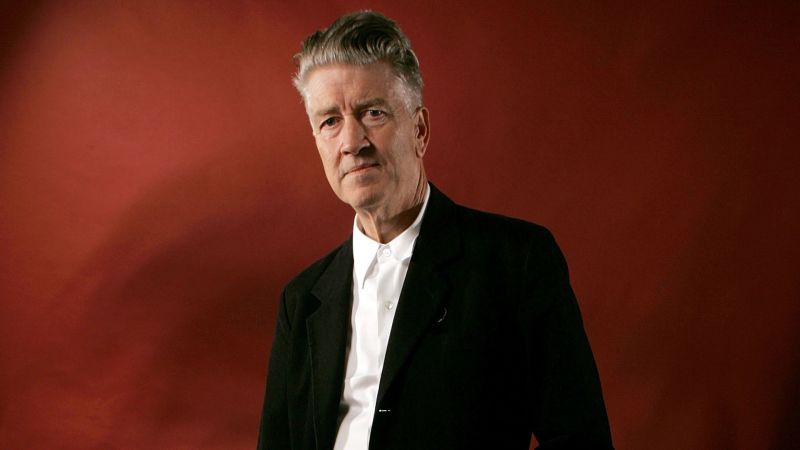David Lynch, a visionary filmmaker lauded for his surreal and groundbreaking approach to cinema, sadly passed away at the age of 78. Renowned for iconic works such as “Blue Velvet” and the cult classic television series “Twin Peaks,” Lynch’s distinct cinematic vision combined elements of dreamlike narratives, fragmented timelines, and unsettling imagery that captivated and bewildered audiences across generations. The confirmation of his death was made through his official Facebook page, where his family expressed their grief and requested privacy, stating, “There’s a big hole in the world now that he’s no longer with us.” In a poignant reflection of his perspective on life, they quoted him: “Keep your eye on the donut and not on the hole.”
In a career that spanned nearly five decades, Lynch was not just a filmmaker; he was an artist whose contributions to the cinematic arts were honored with several prestigious accolades. He received the Golden Lion for lifetime achievement at the Venice Film Festival in 2006 and was awarded an honorary Oscar in 2019 for his “lifetime of artistic accomplishment.” His films often delved into the darker aspects of the human psyche, exploring themes of violence and desire while presenting them in an arrestingly unique visual style.
A notable chapter in Lynch’s recent years was his battle with emphysema, a condition he announced in 2024 following a long history of smoking. Despite being largely housebound due to health risks associated with Covid-19, Lynch exuded an unwavering commitment to his creative work, emphasizing, “I am filled with happiness, and I will never retire.” His resilience reflected not just his passion for filmmaking, but also the joy he found in the creative process itself.
Born in Missoula, Montana, in 1946, Lynch experienced a childhood constantly in flux as his family relocated due to his father’s work with the U.S. Department of Agriculture. Although he ultimately rose to prominence in the film industry, Lynch initially cultivated his artistic inclinations through painting and visual art, training at notable institutions like the Corcoran School of Arts in Washington D.C. and the Pennsylvania Academy of Fine Arts. This foundation in visual arts undoubtedly influenced his later forays into film, where he sought to bring his paintings to life through moving images.
His career in filmmaking officially began in Philadelphia, where the budding director experimented with various mediums to create animated films that reflected his affinity for the unusual. Lynch’s entry into feature films took place when he relocated to Los Angeles in 1970, leading to the production of “Eraserhead,” released in 1977. This film, celebrated for its unique blend of elements from body horror and drama, became a staple in midnight screenings and established Lynch’s reputation for pushing boundaries in visual storytelling.
Following “Eraserhead,” Lynch’s filmography continued to evolve with significant works such as “The Elephant Man,” a critically acclaimed biographical drama, and the polarizing adaptation of “Dune.” However, it was “Blue Velvet,” released in 1986, that solidified his thematic style—a portrait of suburban normalcy hiding dark secrets, with recurring actors Kyle MacLachlan and Laura Dern delivering compelling performances.
In 1990, Lynch premiered the highly influential series “Twin Peaks,” which garnered widespread acclaim and recognition, including 14 Emmy nominations in its first season. Though the show ran for just two seasons, its impact resonated deeply within the television landscape, often cited as a pioneering work that transformed narrative storytelling on screen.
In the latter part of his career, Lynch released “Inland Empire” in 2006, but had largely shifted focus from feature filmmaking. He explored short films and music videos, creating art that remained consistent with his surrealistic vision. Notably, the third season of “Twin Peaks” returned in 2017, showcasing Lynch’s enduring influence within the realm of television and film.
Though renowned primarily for his contributions to cinema, Lynch never abandoned painting, experimenting with music and releasing album projects over the years. Reflecting on his journey, he stated in 2019, “I always say, I go where the ideas take me,” highlighting his commitment to creativity without bounds. As a practitioner of transcendental meditation since 1973, Lynch attributed a significant part of his creative energy and perspective on life to this practice, emphasizing personal happiness and fulfillment derived from the creative process itself.
In interviews, Lynch reiterated that behind the seemingly macabre themes of his work lies an essence of joy—a belief that the act of creating art itself should be a source of happiness. As he succinctly put it, “Happiness is not a new car; it’s the doing of the work.” With his passing, David Lynch leaves behind a legacy embedded in the collective consciousness of cinema and art, inspiring countless artists to explore the surreal and the profound.











